
UTAR’s Faculty of Arts and Social Science (FAS) Department of Languages and Linguistics (DLL) organised an exhibition titled “Varieties of English” on 24 August 2018 at Kampar Campus.
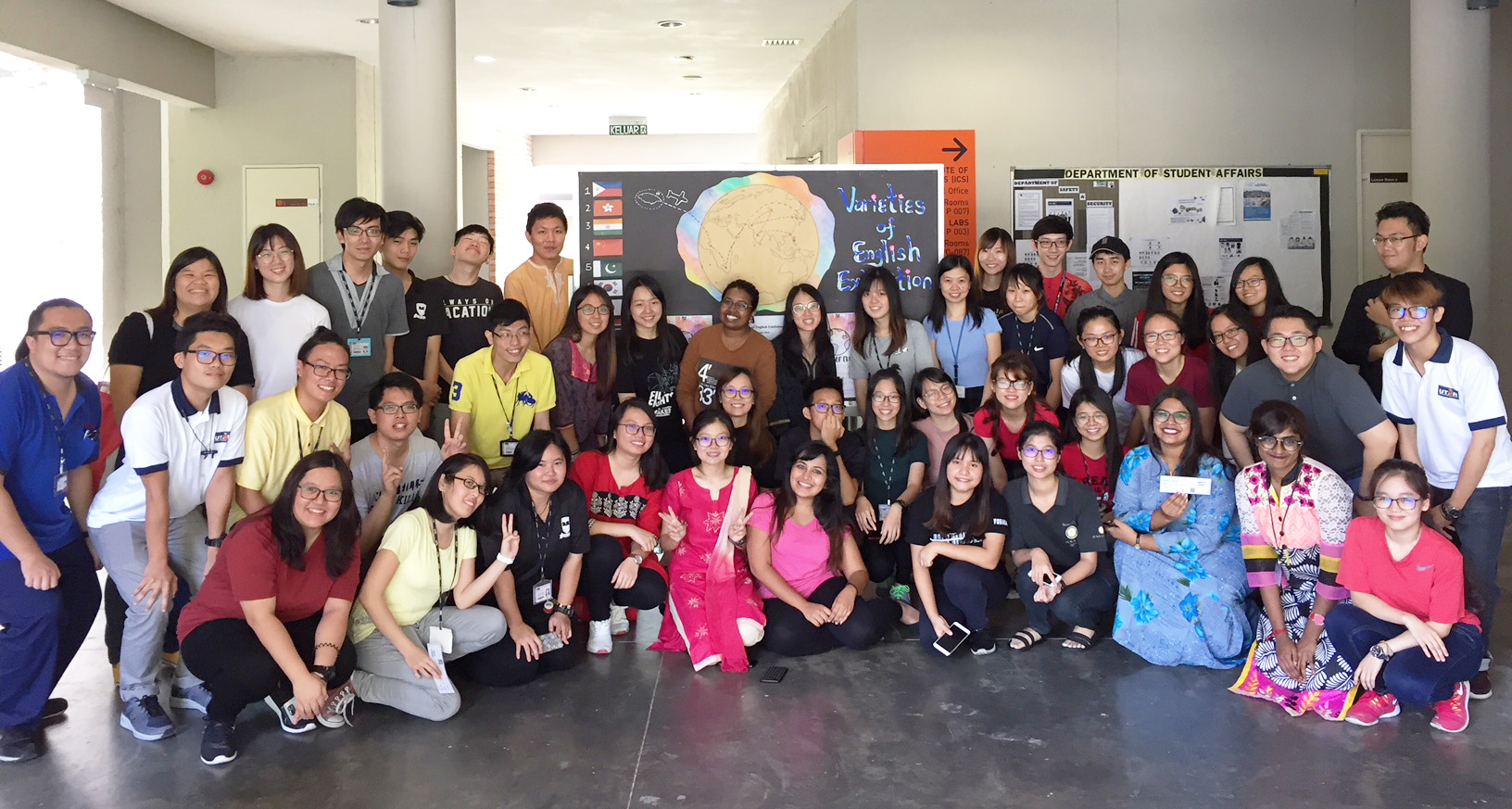
A group photo of organising committee
Organised by a total of 51 Bachelor of Arts (Hons) English Language students, the exhibition provided a platform for May 2018 trimester UALL2034 Sociolinguistics students to showcase 10 different varieties of English (World Englishes) focusing on their linguistic characteristics.
The exhibition also aimed to provide opportunities for students to present what they have learnt in the classroom to their peers, celebrate the variation in World Englishes as well as to eliminate the typical view that deviations are errors.
With the objective to raise awareness and educate the students about World Englishes, the exhibition saw a total of 10 different booths showcasing 10 different types of English, namely Philippines English, Hong Kong English, India English, Chinglish, Pakistani English, Korean English, Japanese English, South African English, Nigerian English and Jamaican English.
The booths showcased varieties of English used in diverse sociolinguistic contexts such as the history, grammar, discourse, phonology, lexis and its current status and uses. The exhibition also featured interactive and entertaining English games for students and visitors.
Ong (seated, fourth from left) and her students giving thumbs up after the exhibition
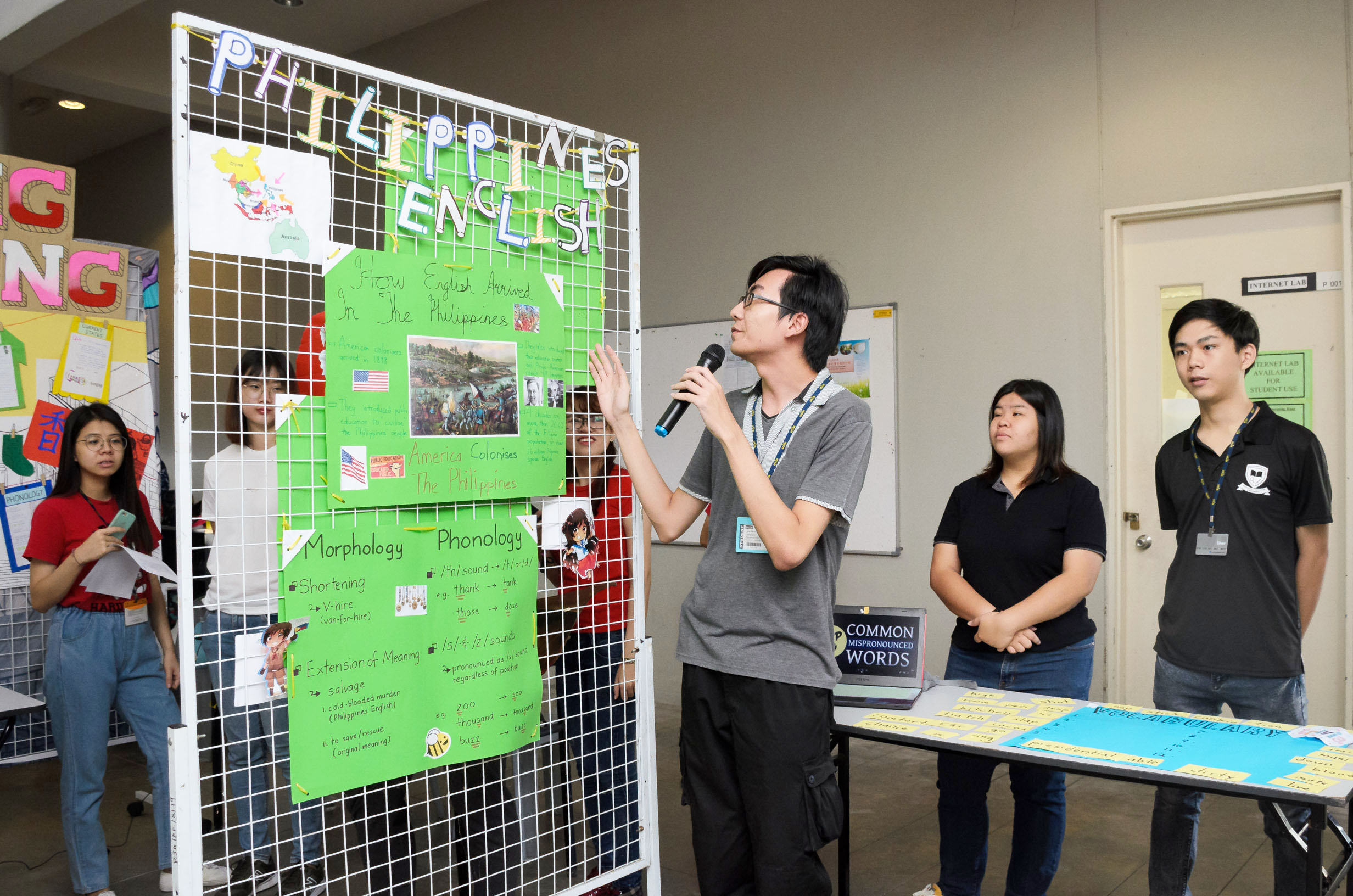
The Organising Chairperson Tan introducing Philippines English
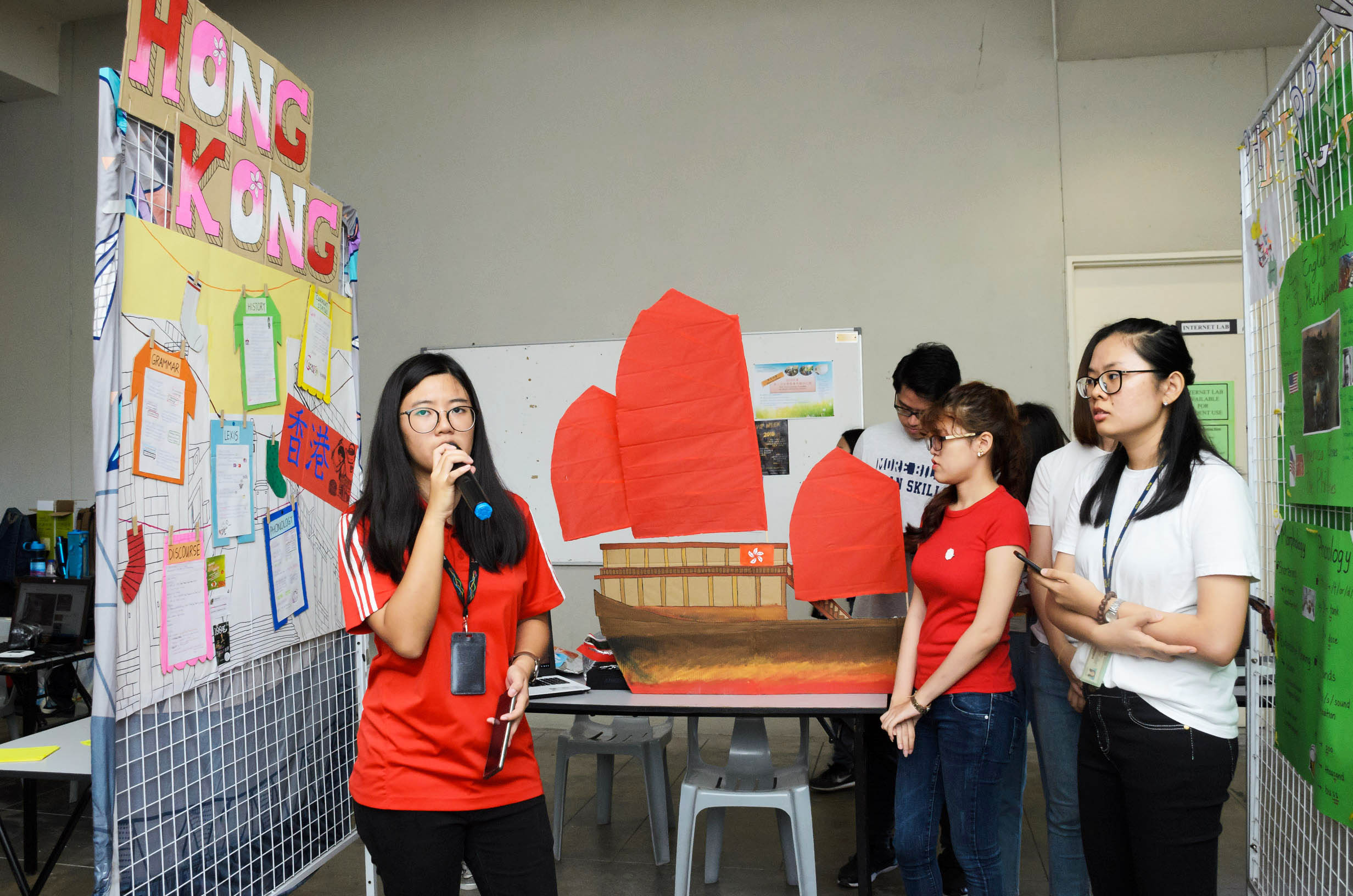
Students presenting about Hong Kong English
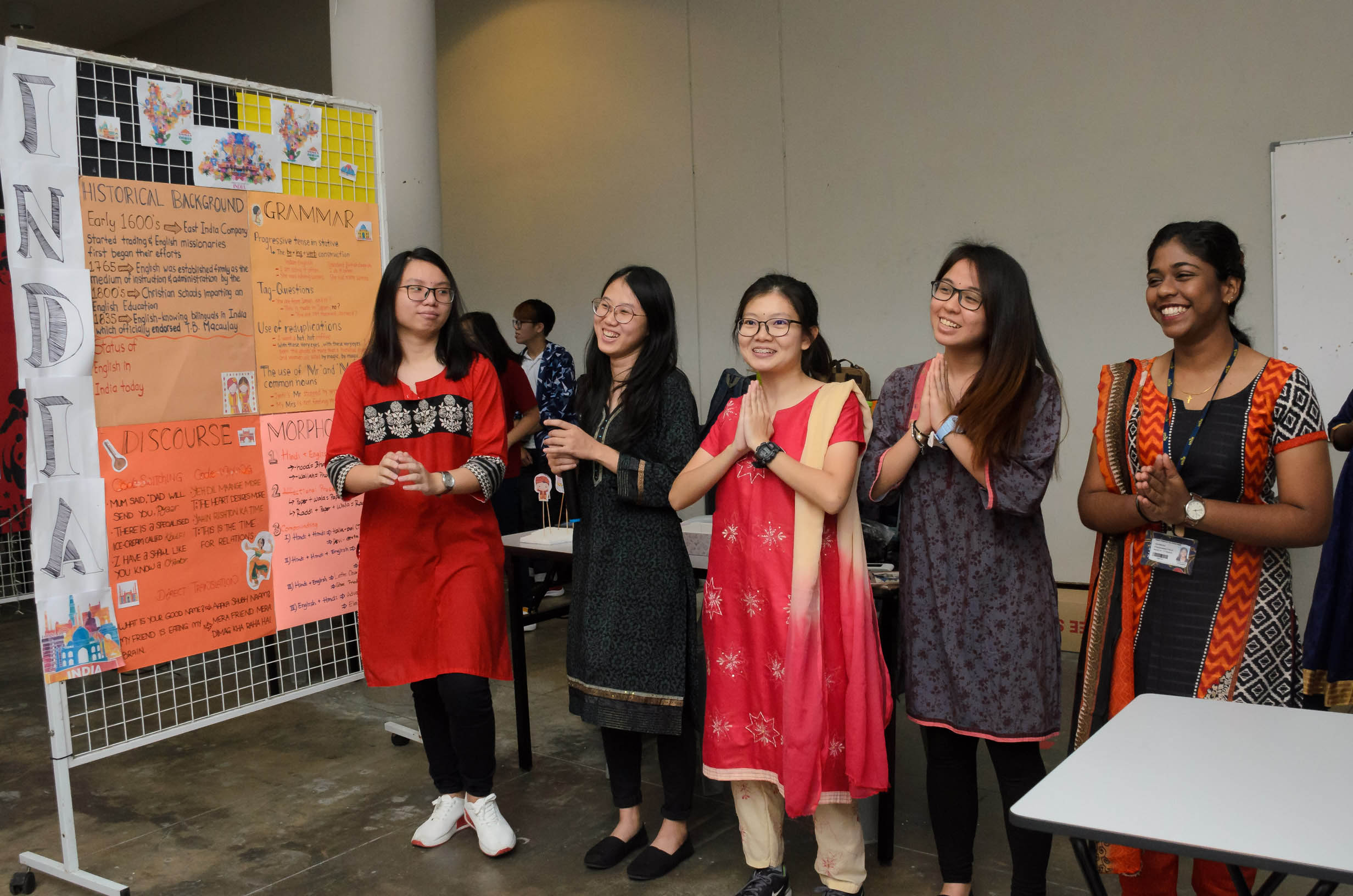
The group mates of India English
The Organising Chairperson of the exhibition, Ryan Tan Cheng Hoe explained, “World Englishes is a term for emerging localised varieties of English, especially varieties that have developed in territories influenced by the United Kingdom or the United States. The study of World Englishes consists of identifying varieties of English used in multilingual contexts globally and analysing how histories, multicultural backgrounds, mother tongues and context of functions influence the use of English in different regions of the world.”
He added, “English users can choose to speak either in standard or non-standard varieties. There are many varieties of English spoken in the world. The oldest variety of English is the British English, spoken in the United Kingdom. As a result of British colonisation, new Englishes such as Malaysian English, Singaporean English, Philippines English, Indian English and Jamaican English emerged. Also, due to globalisation, countries where English has no significant status too are developing their own varieties; for example China English, Japanese English and Korean English.”
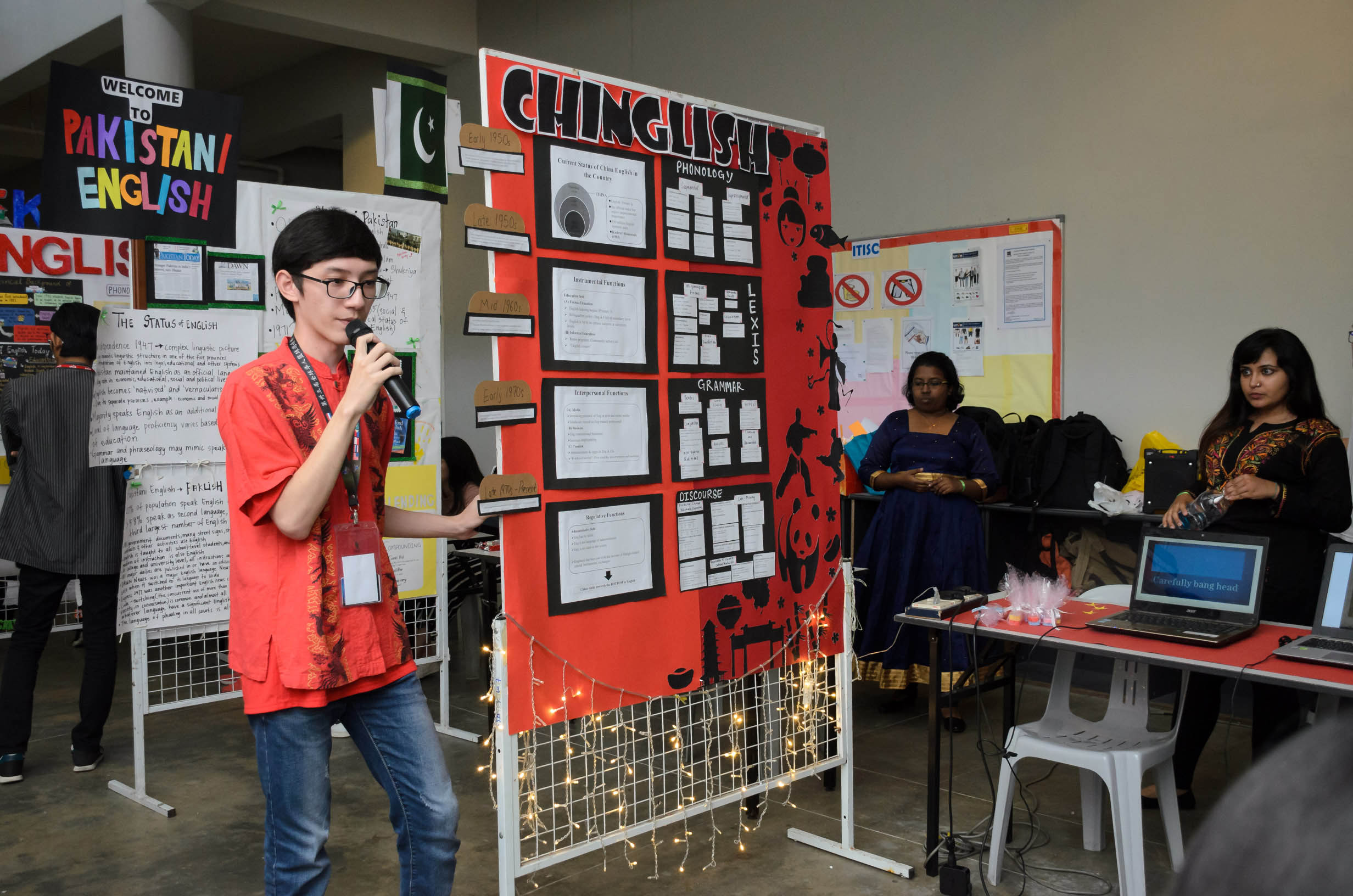
Chinglish, Chinese-influenced English
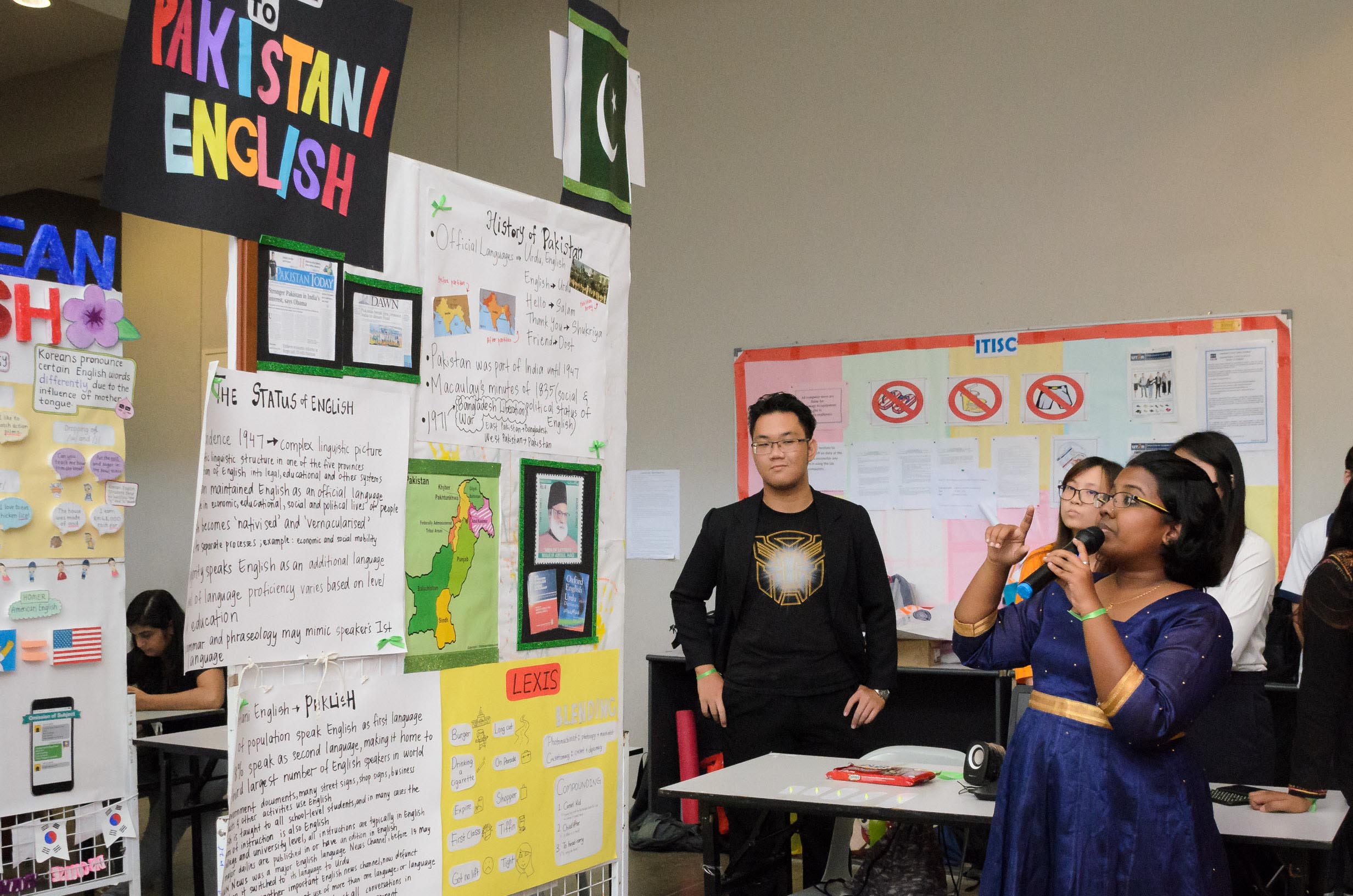
Paklish, Pakistani English
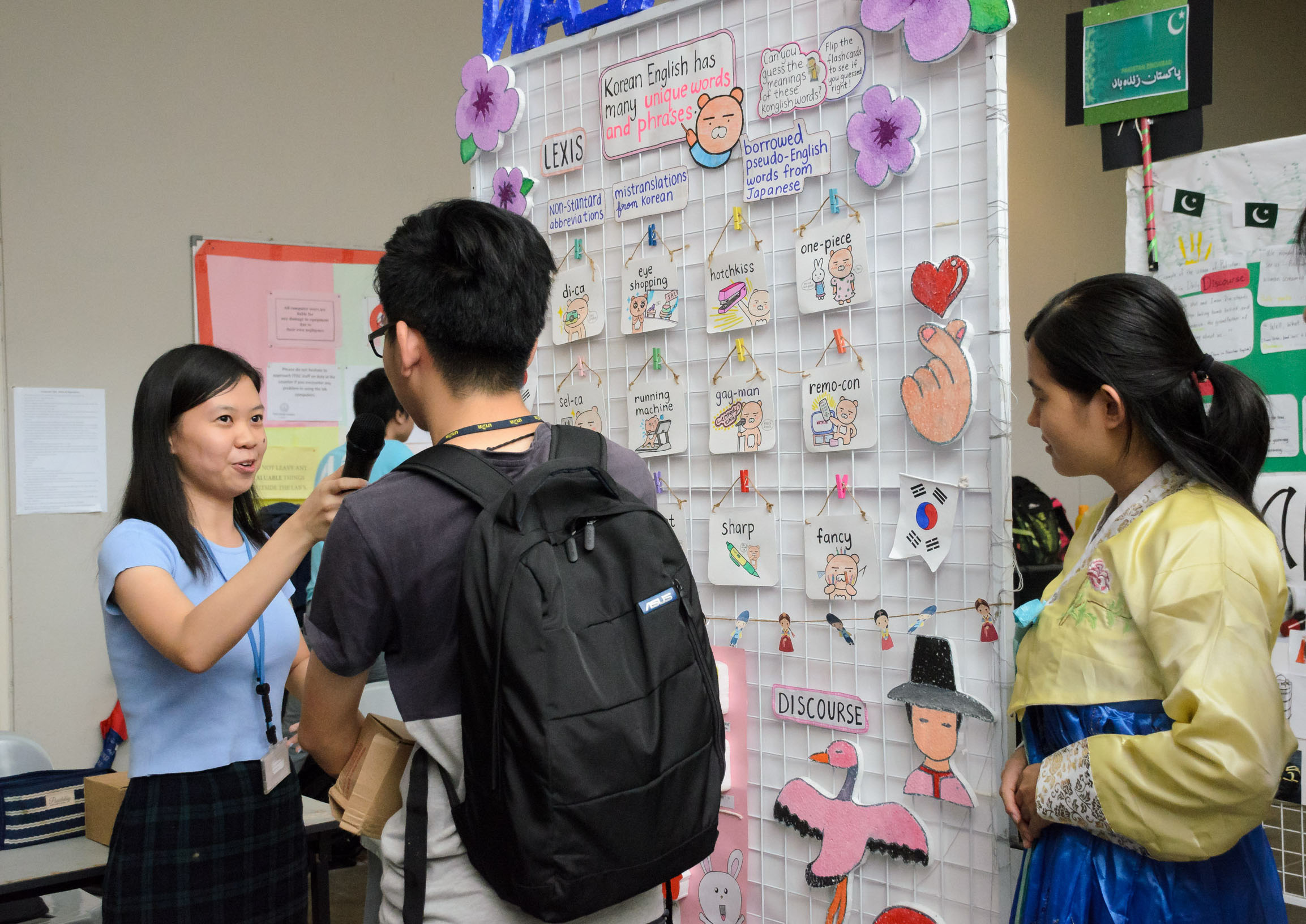
Students explaining to visitors about Korean English
The Advisor of UALL 2034 Sociolinguistics subject Christina Ong Sook Beng said, “The importance of English as a global language has established itself in two primary ways. First, many regions around the world use their own variations of English called “World Englishes”. Second, English has become the world’s lingua franca for groups who do not share a common first language. We should not disregard the emergence of localised features such as “discuss about, emphasise on, demand for, general public, basic necessities, close proximity” in Malaysian English. Therefore, I believe it is important for English Language students to learn and move beyond Malaysian English to be exposed to other localised varieties of English.”
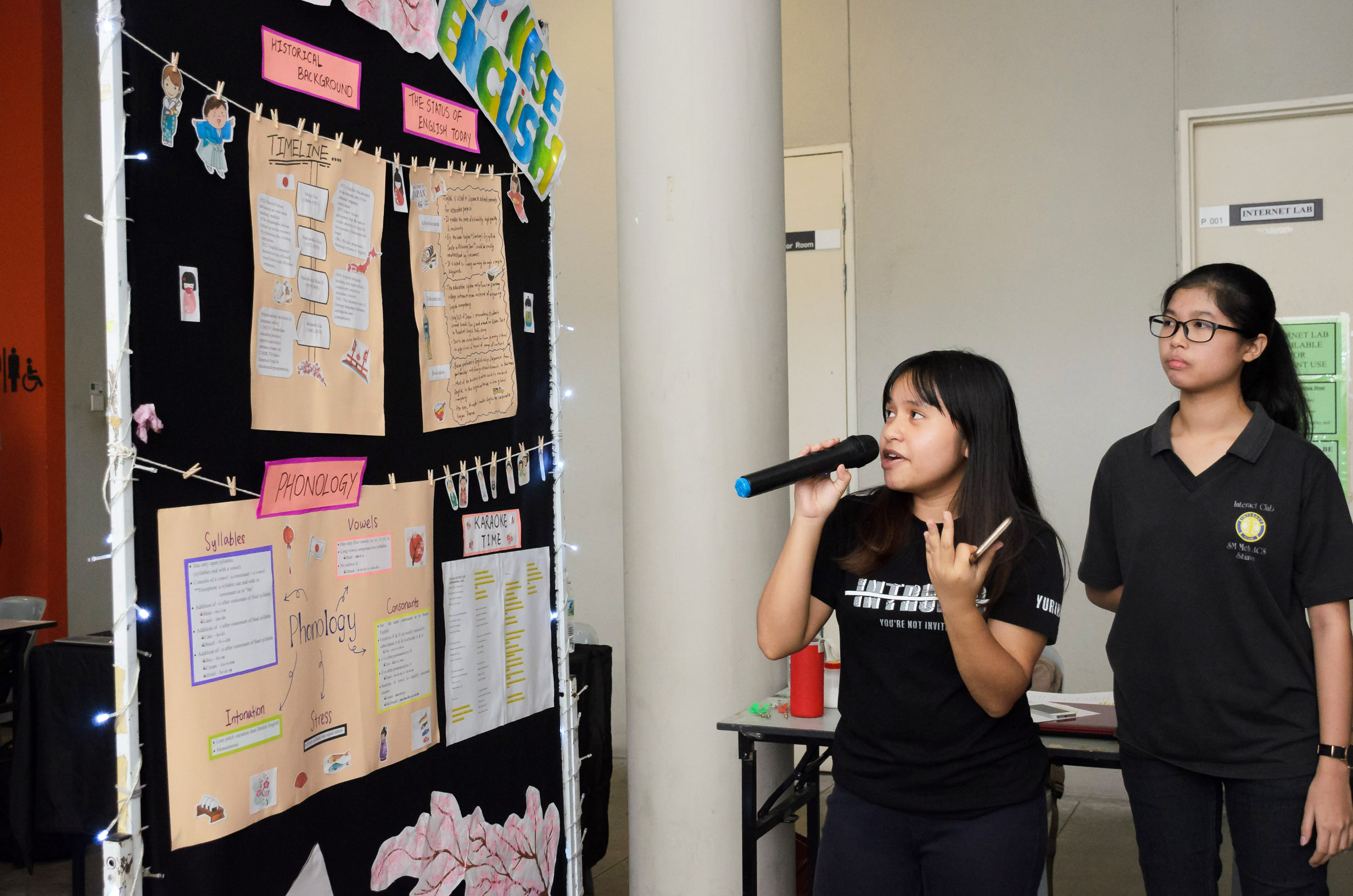
Students at Japanese English booth
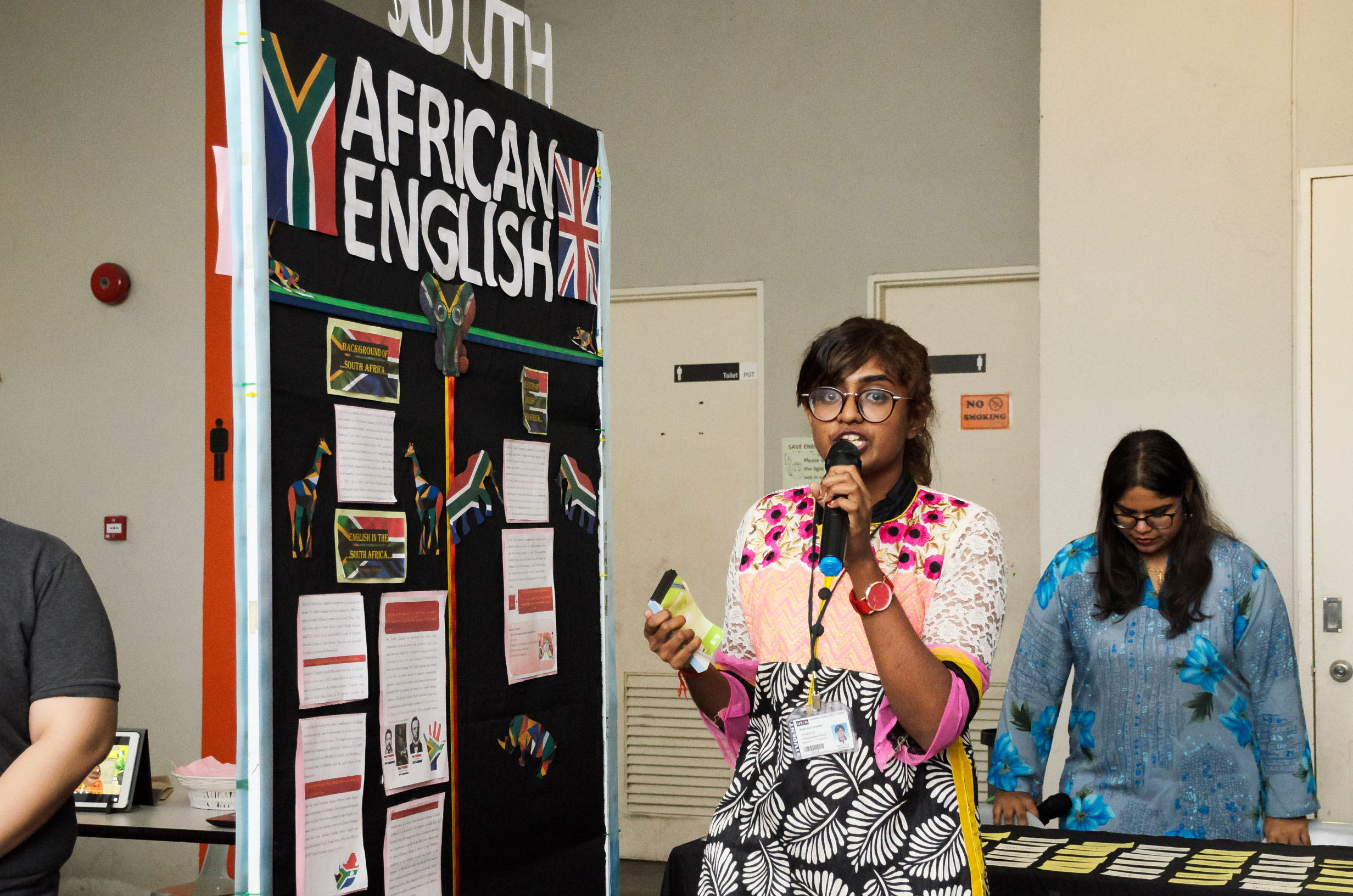
A student presenting about South African English
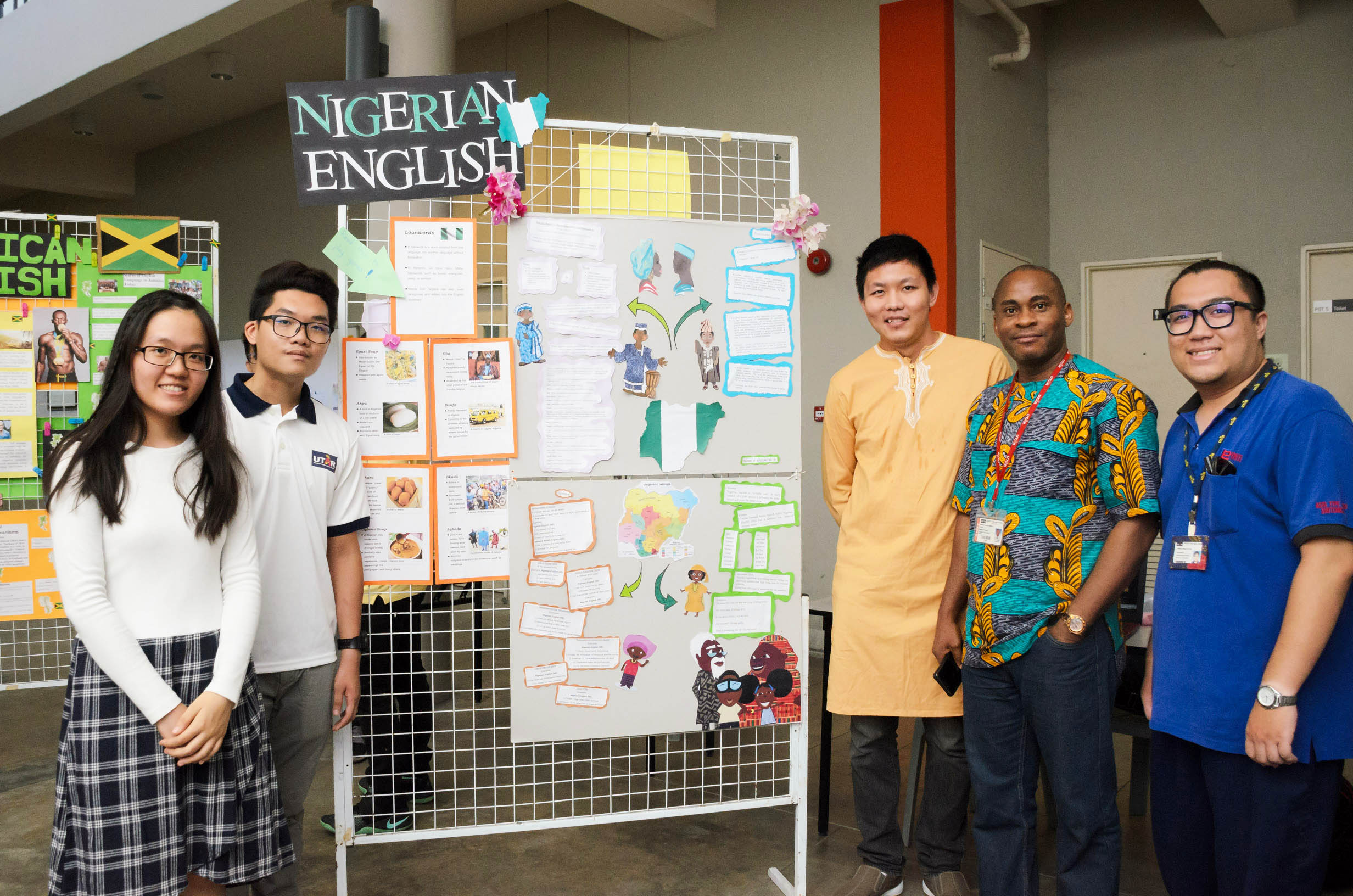
Presenters with FAS lecturer Dr Ihediwa Samuel Chibundu (second from right) from Nigeria at Nigerian English booth
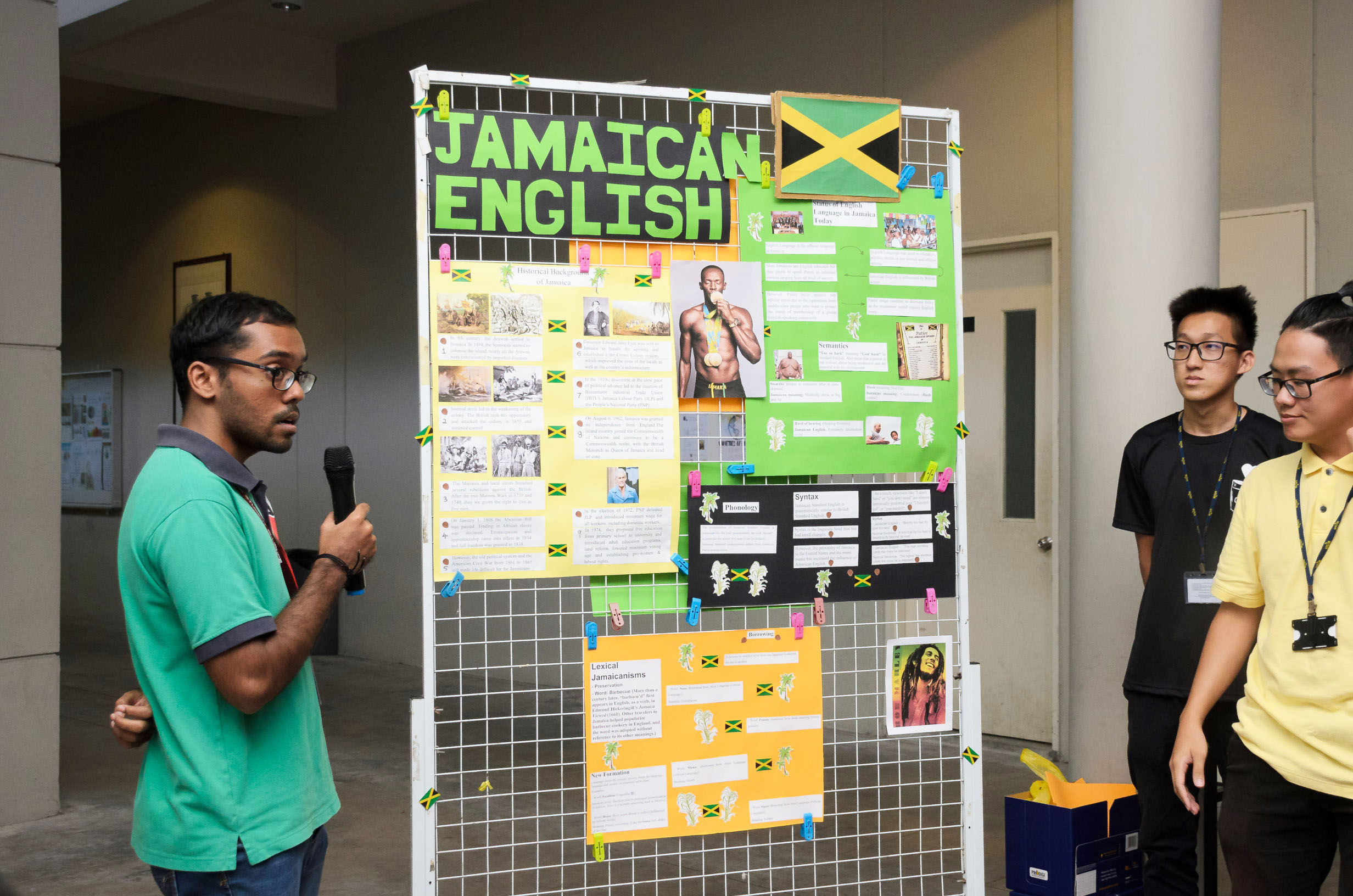
Students at Jamaican English booth
The participants thoroughly enjoyed the language games designed for them as they progressed from one station to another, acquiring new knowledge and reinforcing existing ones in the process.
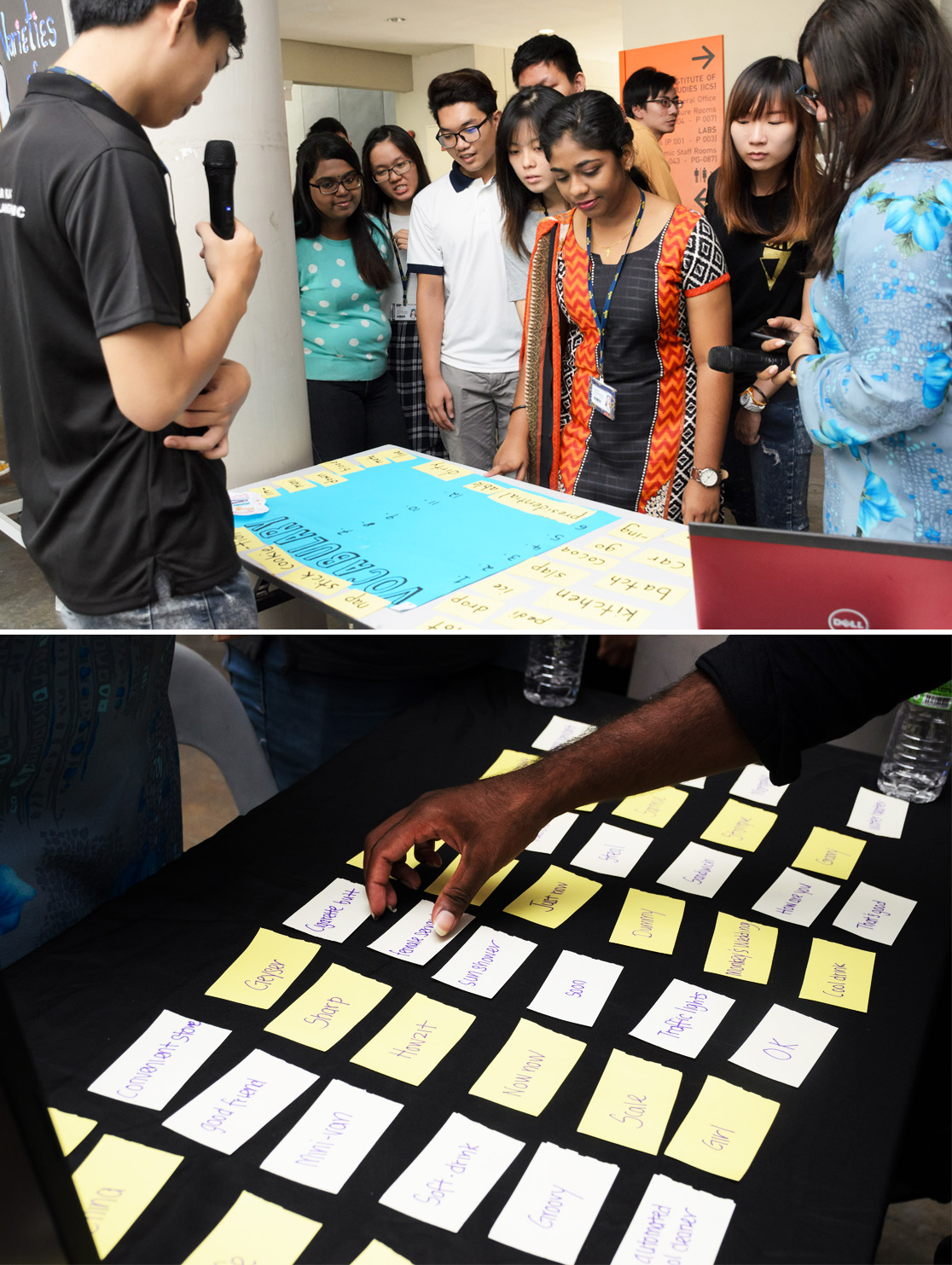
Students enjoying language games at some booths
© 2019 UNIVERSITI TUNKU ABDUL RAHMAN DU012(A).
Wholly owned by UTAR Education Foundation Co. No. 578227-M LEGAL STATEMENT TERM OF USAGE PRIVACY NOTICE